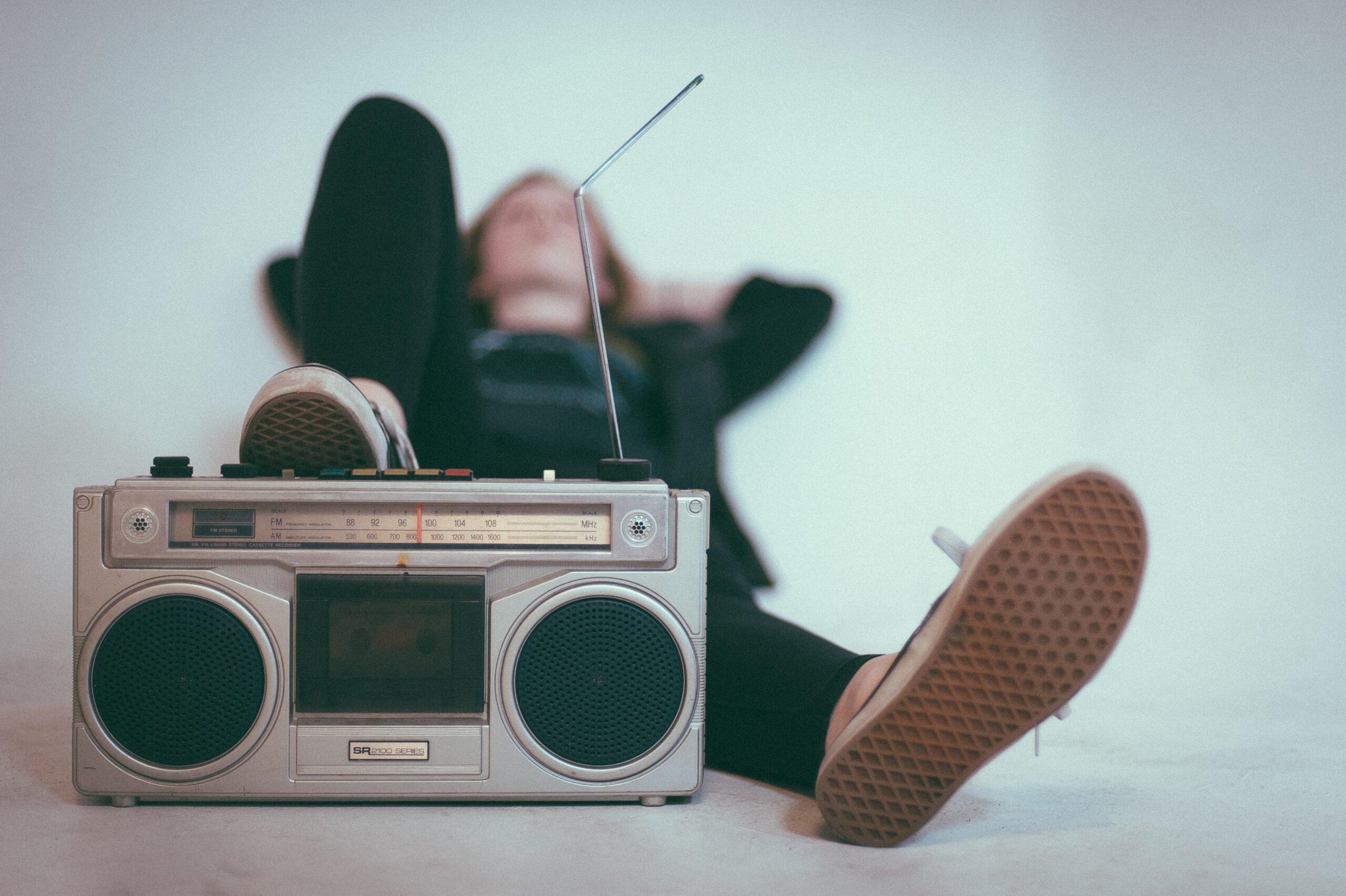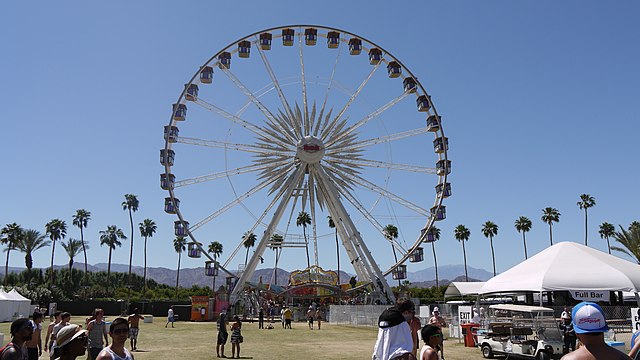Music
To Achieve Gender Equality in Music, We Need More Female Producers and Musicians
29 Apr, 19

Photo by Eric Nopanen on Unsplash
Fact: 21.7% of artists in the music industry are women*.
Additional fact: only 2.1% of music producers are women.
Recently, there’s been a lot of discussion about the lack of female representation in the music industry, but there’s been less emphasis on the startling lack of female producers. This has to change, because in order for women to achieve real equality in the music industry—not just illusory representation in the form of overt sexualization and commodification—they need to be producing their own music.
They also need to be playing their own instruments, working their own sound systems, and signing artists to their own labels. In short, more women need to be taking control of their work.
In a recent interview, producer and artist King Princessstated that “it’s tough out here for women who have a vision, and I think that the most important realization I came to in music was that I need to be the person responsible for my vision. I need to hold myself responsible and learn this shit. It’s not hard, it’s just daunting to be a tech god.”
Miquela interviews King Princess | Coachella 2019www.youtube.com
She’s right. Many women, for whatever reason, find themselves deterred from production, resigned to the idea that only men can adequately mix and master their tracks; but, in order to totally take control of their images and sounds, women need to hold themselves accountable and learn.
After all, just because a woman sings in a band and poses for press photos does not mean that her success is a victory for women on the whole. Women have been featured as vocalists in front of all-male bands since time immemorial, propped up as pretty faces while men rail on their guitars, fiddle with the levers on their soundboards, and pull the strings of the entire situation.
Plus, female frontwomen—especially in the commercial cover band industry—are often held to disturbingly sexist standards. Just look at the ads for artists on Craigslist and you’ll notice that many of the calls for female vocalists specify that the candidate must be “in good shape” or even “slim,” a disturbing and archaic requirement that throws the standards and requirements that haunt the music industry in stark relief.
This isn’t to say that all female frontwomen are nothing more than pretty faces. It is to say that if we want to achieve gender equality in the music industry, underrepresented parties need to take up space not only behind the mic but in all aspects of performance and creative development.
First and foremost, female producers would create space for many female artists who might have otherwise been deterred from pursuing music. After all, recording studios and concert halls are dark, intimate spaces where sexual assault occurs far too often, and it’s impossible to know how many women have left music industry due to bad experiences at the hands of men who feel they have the power to take advantage of them. Earlier this year, a bassist named Ava revealed that she quit the music industry because of abuse she received at the hands of Ryan Adams when she was underage; and her story is far from an isolated incident. According to The New York Times, Ava “never played another gig” after “the idea that she would be objectified or have to sleep with people to get ahead ‘just totally put [her] off of the whole idea’ of being a musician.” Her experience is not an isolated incident.
This is a tragic but all-too-common story. But if more women were to take up production, claiming these traditionally masculine spaces as their own and creating safe environments for young female artists, who knows what kind of alchemy could occur?
As things are now, the lack of female producers—and the concurrent number of female artists who have left the industry due to assault and intimidation at the hands of powerful men—could explain why women have been so underrepresented on end-of-year lists and in awards circuits. Plus, even if you do remain in the industry, it’s quite difficult to create work that’s true to your vision if you’re not writing and producing at least part of it. (Rihanna can do it, but then again, Rihanna is an ageless superhuman, so that argument is irrelevant). Many pop songs with female vocalists—especially the kind that are getting pumped out by increasingly desperate LA’s producers—were clearly not written by their singers, and so they’re weighed down by a kind of synthetic detachment. When women aren’t writing and producing, and when they’re singing words they don’t believe in, how could they possibly be making their finest work?
The same is true for instrumentalists. Though there are millions of extraordinary female musicians, a video of the top 10 greatest female guitarists features only a few female shredders and mostly includes songs with vocals, whereas every man in the top 10 is shown shredding on their rather phallic axes in full-on rock god mode. As long as women aren’t shredding, their rock music is simply not going to be as effective as Mick Jaggers. (On the other hand, whether we really need more shredding is a topic for another discussion).
Top 10 Female Guitarists of All Timewww.youtube.com
Top 10 Guitarists of All Time (REDUX)www.youtube.com
Of course, this definitely isn’t to say that women can’t rock—they can and do. Many women have annihilated all expectations and gender norms, despite impossible odds, using their traumas as rocket fuel. Courtney Love transformed her anger and pain from a 1991 assault into the song “Asking For It,” and she’s been destroying sexist expectations for her entire career. The entire Riot Grrl movement was dedicated to bucking gender norms and bringing unruly, powerful women to the fore.
Hole With Kurt Cobain – Asking For Itwww.youtube.com
Plus, some of our greatest, most innovative (and most criminally underrecognized) guitarists and songwriters have been women—take Big Mama Thornton, the original writer of Elvis’s “Hound Dog” who received precisely zero of the royalties he received from it; or Sister Rosetta Tharpe, whose work was a fundamental precursor to rock and roll; or anyone on She Shreds’ list of 50 Black Guitarists and Bassists You Need to Know. So, so many female greats—women of color in particular—have been wiped from history or are just beginning to receive their due.
Similarly, though they comprise a tiny percentage of the whole, there have always been female music producers. The problem isn’t that they don’t exist, but that they’re not recognized, argues producer Ebonie Smith, citing many who are doing excellent work but who are not receiving adequate acclaim. These include WondaGurl, the teenager who produced Travis Scott’s “Antidote” and part of Jay-Z’s Magna Carta Holy Grail; Nova Wav, who produces for Kehlani; Nicki Minaj’s producer DJ Diamond Kutz; and hundreds of others.
Things seem to be moving forward, at least. Initiatives like Smith’s Gender Amplified, Inc. are encouraging women and nonbinary people to take up production and music tech. In terms of instrumentalists, a recent Fender study found that roughly 50% of guitars purchased in 2016 were bought by women or girls; and with publications like She Shreds elevating the voices of diverse female guitarists and bassists, we’ll most likely be seeing a whole new generation of players rising from the ashes, the angry cries of their foremothers ringing in their ears. For some, that generation has already arrived—for example, LA Mag recently published an article with the self-explanatory title “Women Are Saving the Electric Guitar.”
The Way Ep. 5: Cherry Glazerr’s Clementine Creevy Teaches “I Told You I’d Be With The Guys”www.youtube.com
Studio Politics Featuring Ebonie Smith – EPISODE 1 – “ALL IS GOLDEN, GIRLS.”www.youtube.com
Still, as of now, the statistics show that far too few of the instrumentalists, composers, conductors, and record label executives who occupy positions of power are female. Of course, women are not at fault for their own historical marginalization. For a long time, women have been quietly discouraged from railing on guitars, instead advised to sit quietly at pianos or to sing prettily while men did the work. Plus, the tour and studio life often wasn’t viable for mothers (though naturally, it’s always been perfectly acceptable for fathers). The dearth of women in the music industry is the project of age-old systems of sexism and classism.
But things are changing. Sexism still exists, but with women comprising roughly 50% of the workforce, we can no longer use sexism as the sole excuse for why there are so few female producers. On the whole, as a society, we’ve moved past second-wave feminism, wherein the only goal was to get women into the workplace. But in the realm of music producers, it’s like we’re still living in the 1950s, when it was radical for women not to want children. Women—as well as men—are to blame for the lack of female producers in the modern era.
Perhaps the issue stems from mindset. “What the experiences of women reveal is that the biggest barrier they face is the way the music industry thinks about women,” said Professor Stacey Smith, whose studies generated a report called ‘Inclusion in the Recording Studio?’ Smith writes, “The perception of women is highly stereotypical, sexualized and without skill. Until those core beliefs are altered, women will continue to face a roadblock as they navigate their careers.”
After all, production requires a unique combination of attention to detail, technological savvy, artistic vision, and brash fearlessness. You can learn literally endless amounts about how to produce, how to mix and master and EQ every fiber of every note; but ultimately, production is taking shot after shot into the dark. It’s about believing in your own ability to hear and shape the music into the form you want it to be in. It’s about taking control, the kind that will remain largely unattainable to women as long as the aforementioned perceptions exist.
Hopefully, someday this dissolves and we all realize that we’re all floundering in the dark together. Maybe someday we’ll all understand that gender is a fluid concept, and the ability to create art is one of the things that binds us together as human beings.
But that is not the world we live in. And until that world exists, we desperately need more women behind the mixing board.
*This article recognizes that trans and nonbinary people have often been more erased and marginalized in the music industry to a much greater extent than cisgender women.
Eden Arielle Gordon is a writer and musician from New York. Follow her on Twitter @edenarielmusic.
POP⚡DUST | Read More…
Lana Del Rey, Billie Eilish, and the Sexist Backlash Against Female Sadness
Release Radar: New Releases to Ring In Taurus Season
Ryan Adams Was the Tip of an Iceberg
- Why Don’t More Straight Males Listen to Female Artists? – Popdust ›
- Ava Cherry Covers David Bowies’ “Let’s Dance” – Popdust ›
- Women in Music – Home ›
- Artists make push for gender equality in music industry with all … ›
- Women in music – Wikipedia ›
- Men make the music: Study reveals that women’s voices are missing … ›
- Why Do Female Music Producers Only Make Up 5% Of The Industry? ›
- PRS Foundation boss Vanessa Reed on music’s gender equality fight ›
- New Report Shows Major Lack of Representation by Women in the … ›
- 13 Women On How To Change Male-Dominated Studio Culture … ›
- European network for women in the film industry – EWA Network ›
- Gender equality ›
- 21 Facts About Gender Inequality You Need To Know Now ›
- Statistics | Women and Hollywood ›
- The Music Industry Still Has A Long Way To Go For Gender Equality ›
- Gender Diversity in the Music Industry? The Numbers Are Grim – The … ›
- Women Directors Make Strides, but Studios Are Still Lagging on … ›
- Do female producers hold the key to gender equality in the film … ›













